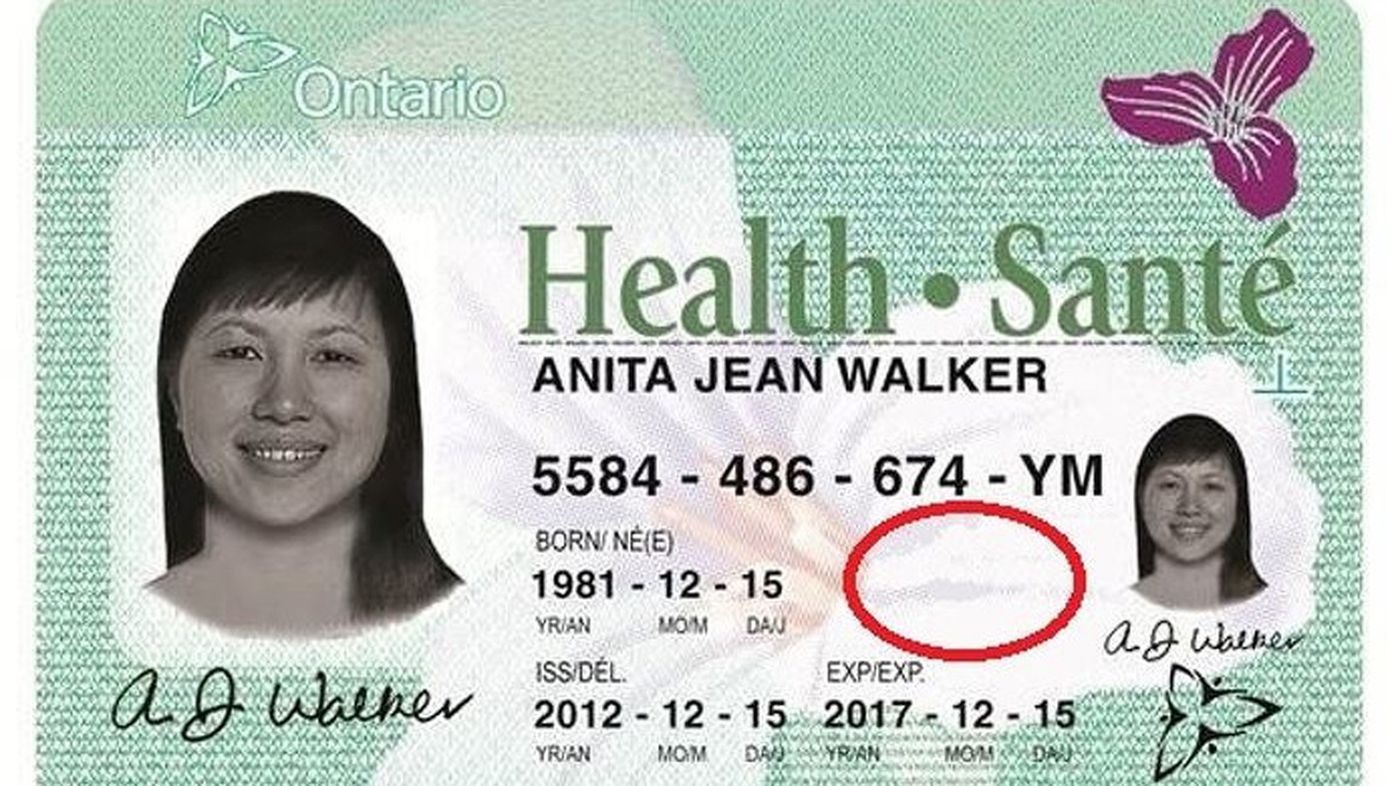While Americans fight over transgender rights, a Canadian province has a simple fix

Renderings of Ontario's new health card, which no longer shows a person's sex. Driver's licenses will soon allow a person to put an 'X' for their gender. (Ministry of Government and Consumer Services/Ontario)
The province is now rolling out health cards that no longer display a person's gender on the front of the card, and beginning next year, drivers will be able to select "X" rather than specify male or female on their licenses.
The province promotes the changes as a step towards greater inclusivity, a move than comes as transgender rights and gender identity have become mainstream political issues in Canada. In Calgary, the city council has endorsed a push to make restrooms gender-neutral. The Canadian Senate is even poised to change the English lyrics of the nation's anthem to make it gender-neutral.
But Ontario — like Canada overall — is not some inclusive utopia. Changes to the province's sex education curriculum, which includes discussion of gender identity, sparked widespread demonstrations last year and frequent reports of parents keeping their children at home in protest.
LGBT advocates say full equality for transgender and other non-conforming people is still a long way off.
Massarella, the lead physician for the transgender care program at a community health center in southern Ontario, said the changes to health cards could make simple interactions — a visit to the emergency room, a routine checkup with a physician — easier for transgender people.
"For transgender people, there's the whole idea of being the impostor or being deceptive," said Massarella. Such thinking, she said, is what's driving the fierce debate in the U.S. over letting people use public bathrooms that correspond with their gender identity.
"When you're interacting with any government, when your ID doesn't match … depending on who you meet and who you come across, it can create … unnecessary burden on that individual."
The Trans PULSE research project, which investigates the health impacts of transgender discrimination in Ontario, found that an estimated 21% of transgender people surveyed reported avoiding emergency medical care out of fear their transgender identity would lead to a negative experience. More than half the transgender patients who sought emergency medical care in Ontario reported being subjected to hurtful language and ridicule, and encountering medical staff who "refused to discuss trans-related concerns," among other negative experiences.
Another report found nearly half of those who had transitioned to living as a man or woman did not have government-issued identification that matched their gender identity.
The first person a patient sees in a healthcare setting is usually a front-desk worker, not a doctor, said Greta Bauer, an investigator with Trans PULSE and associate professor at Ontario's Western University. A worker might attempt to correct a "quote unquote mistake" when meeting someone whose appearance does not conform to the gender designation on their health card, Bauer said.
"That can result in … people who are trans being inadvertently outed in the doctor's office," Bauer said. "Or it can result in some uncomfortable discussions in the presence of other patients."